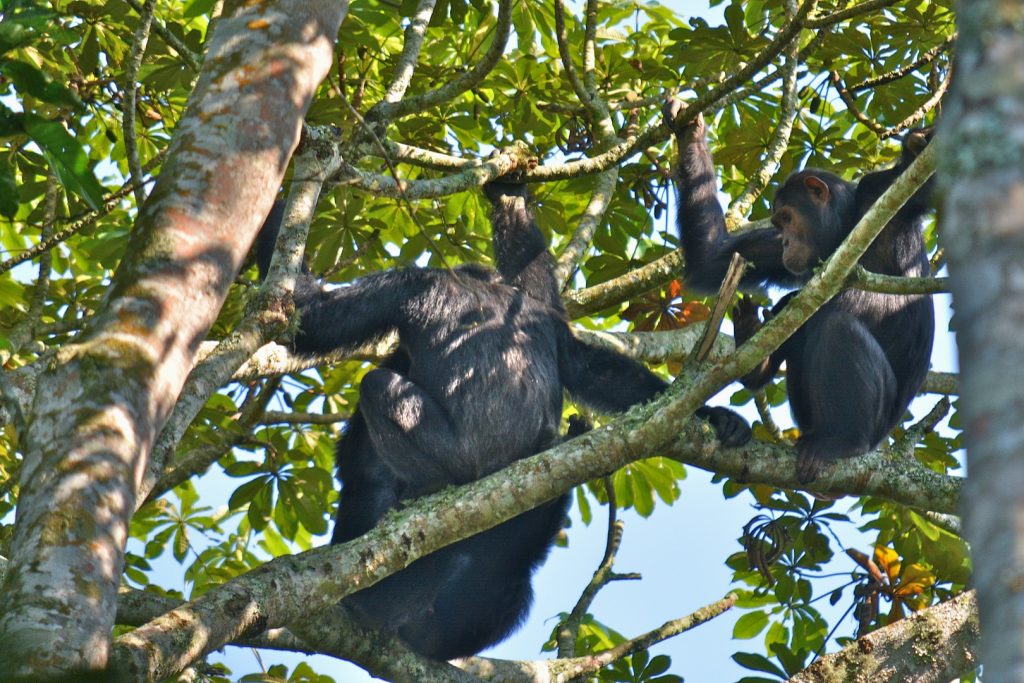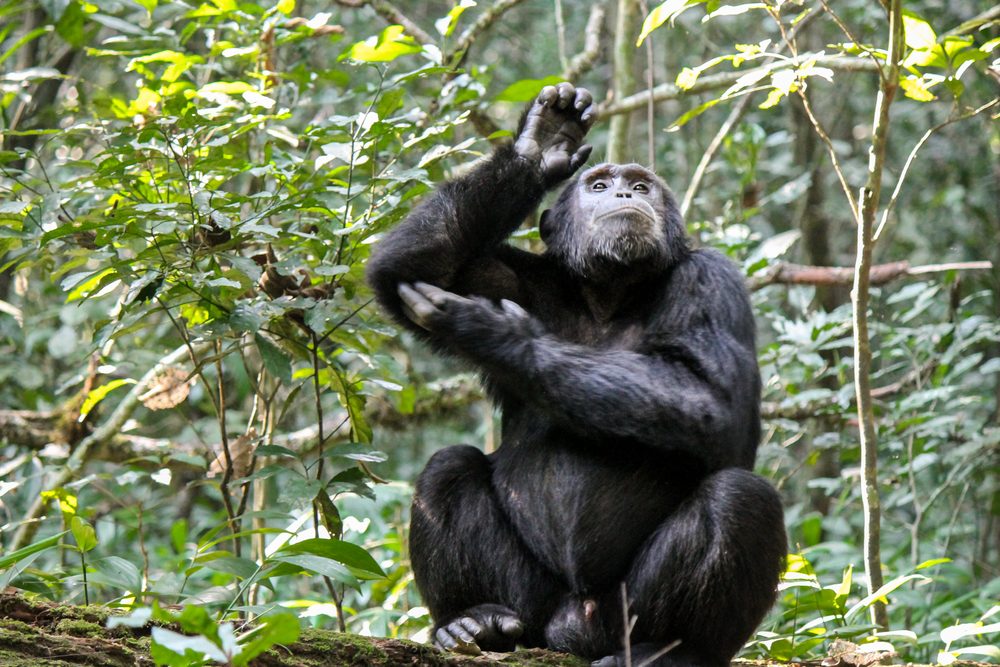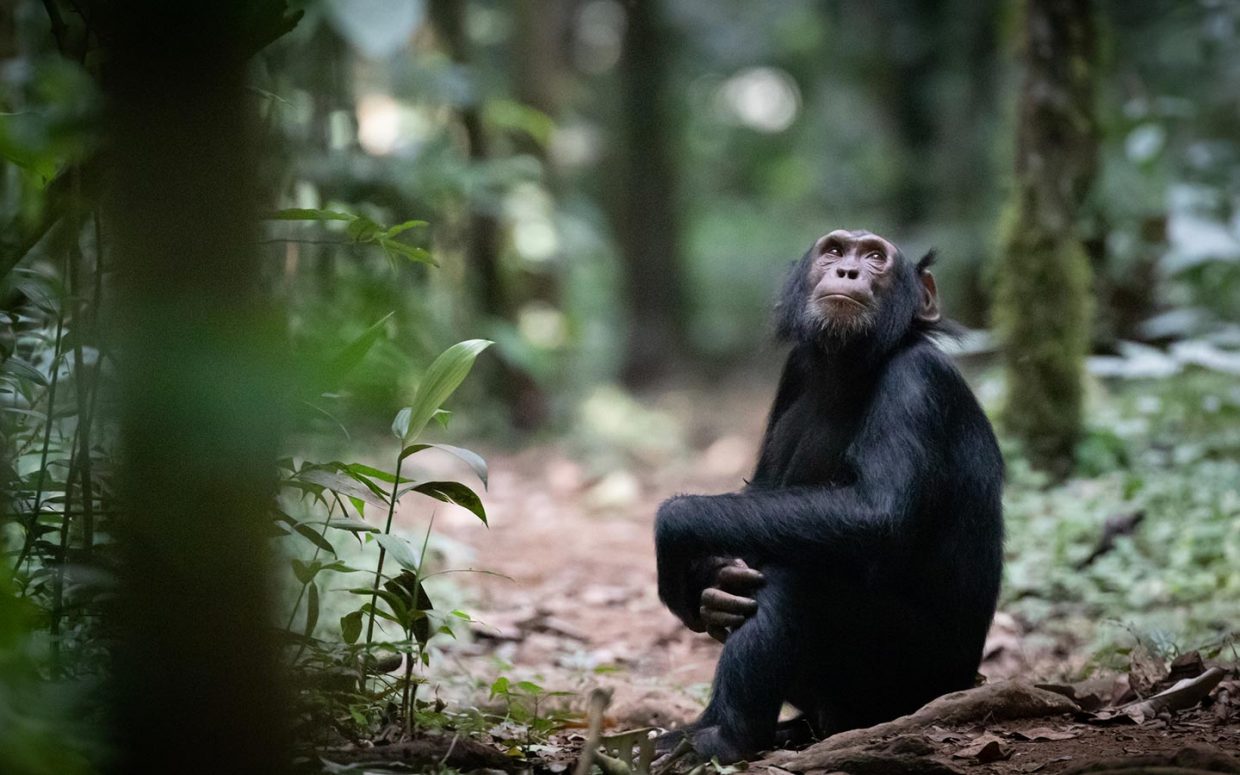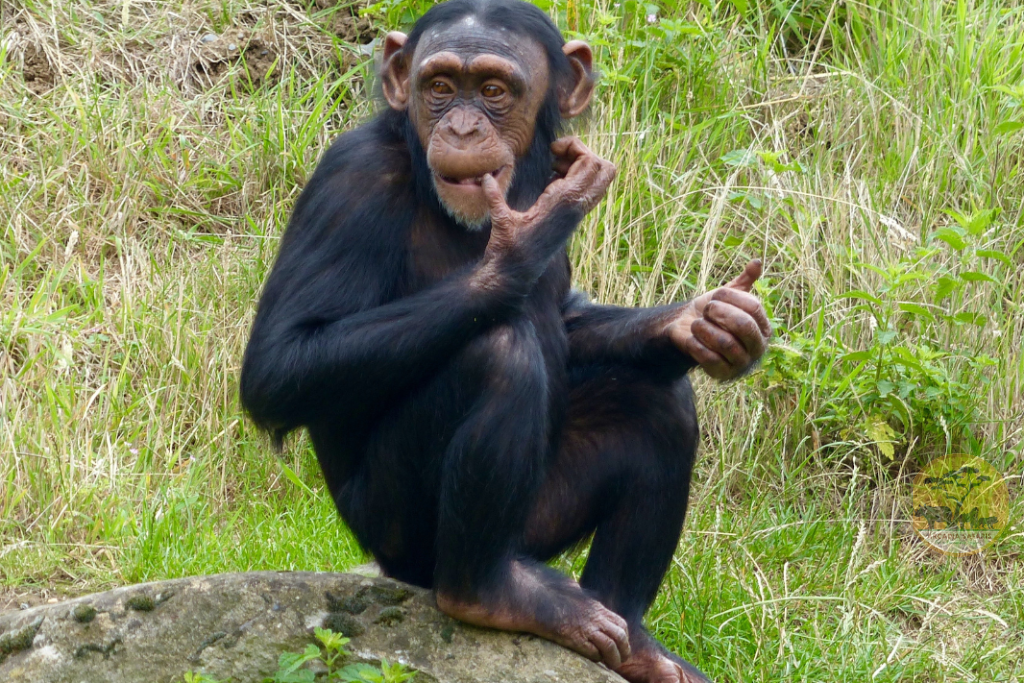Facts About Chimpanzees: 10 Interesting Facts You Should Know
Facts about Chimpanzees. Whereas our close animal relatives, chimpanzees share about 98% of our DNA, highly intelligent social and complex animals, whose behaviors continue to amaze both scientists and animal enthusiasts. It is in the wilds of Africa (Uganda, Rwanda), in research settings, that time and again this animal has continued to share some unique skills and very interesting social structures with fascinating adaptations, making them one of the most interesting species on the planet.
Following are 10 interesting facts that show their intelligence, social behaviors, and importance.
1. Chimpanzees Share 98% of Their DNA with Humans
One of the best-acknowledged facts about chimpanzees is their genetic proximity to humans. They share about 98.7% of DNA with us, making them among our closest living relatives. This genetic similarity provides an explanation for a great deal of physical, behavioral, and cognitive traits that they have in common with humans. From tool use to complex emotions, chimpanzees mirror many aspects of human life with profound insight into our evolutionary history.
2. Chimpanzees Are Tool Users and Innovators
Of all the wild animals, chimpanzees are among the rare few that use tools. They use sticks to fish termites out of mounds, stones to crack open nuts, and leaves as sponges in order to soak up water for drinking. Most astonishingly, not only do they use tools but also pass their knowledge of using these tools to successive generations-a behavior once thought exclusive to humans. Local groups of chimps exhibit distinct “tool cultures.”

3. They Live in Complex Social Groups
Chimpanzees are social animals that live in communities ranging from as few as 15 to over 100 individuals. Their social structures are hierarchical, with the alpha male leading the group. It is not all about strength in chimpanzee society; alliances and relationships are also crucial aspects of sustaining power. Males form coalitions among themselves; they often help each other up through the ranks. The females also hold a high position in social status, and strong bonds are maintained through grooming, food sharing, and protection.
4. They have highly developed communication skills
Communication in chimpanzees is a complicated interrelationship between vocalizations, facial expressions, and body language. Pant-hoots, grunts, and screams are used as calls for long-distance transmission or at moments of excitement and danger. They even use physical gestures such as holding hands, kissing, and hugging as actions to strengthen their social bonds. Some primatologists have observed that different communities of chimpanzees have their own “dialects,” wherein different sounds mean the same thing.
5. Chimpanzees Show Strong Familial Bonds
The mother chimpanzees are very caring and protective towards their children. They take care of the infants for up to five years of age while giving protection through lifetime bonds between mother and child. The infant young chimpanzee learns through observation and imitation by the mother in foraging and tool-use activities. This close family unit plays an important part in a chimpanzee’s survival and social learning.

6. They show empathy and co-operative behavior
In the animal kingdom, apes show a gamut of emotions from joy, euphoria, sadness, and compassion. Many reported cases show that chimpanzees act unselfishly in helping others without expecting any payback for the good deed. They comfort sad companions during these times by embracing or patting them. They hunt together, they divide their catch equitably, and they protect the weak among them.
7. Chimpanzees Are Omnivores and Sometimes Go Hunting for Meat
While chimpanzees are first and foremost frugivorous, they are omnivores and have been known to hunt other animals, especially smaller monkeys like the red colobus monkey. Hunting is normally a coordinated effort, and the successful hunters will share the meat with others in the community. This hunting behavior points to chimpanzee society having cooperative interactions, while additionally indicating complex food acquisition strategies.
8. They Are Victims of Habitat Loss and Poaching
The IUCN has listed chimpanzees as endangered. Deforestation, illegal hunting, and the bushmeat trade have driven their populations to extreme decline. Native to the forests and savannas of equatorial Africa, human encroachment upon their natural habitats continues to reduce their numbers. Their survival will depend on such conservation efforts as habitat preservation and anti-poaching measures.

9. Chimpanzees have been known to mourn their dead
Death- the presence of it, and chimpanzees mourn, too, in ways quite not different from human mourning customs. They would oftentimes lie next to the body for days, apparently in a solemn mood, as they would sit quietly or lightly groom the corpse. Sometimes, they would cover the body with branches or leaves. Researchers considered this behavior evidence of their complex understanding of death.
10. Chimpanzees are extremely intelligent animals
The chimpanzee is highly intelligent, with advanced cognitive abilities running almost parallel to those of human children in their tender years. They solve complex problems, recognize themselves in mirrors-a thing most primates do not do-and understand simple numerical concepts. In research settings, chimps have been taught sign language and symbols on a computer, showcasing advanced memory and learning capabilities. This cognitive flexibility is a testament to their evolutionary success and adaptability not only in the wild but also in captivity.
Final Remarks on these Guardians of the Wild
Chimpanzees are not just awesome creatures but also an important part of our planet’s biodiversity and crucial to understanding our own evolution. Their intelligence, social complexity, and adaptability are truly remarkable. Yet, however wonderful, they present many threats in the wild, and their very survival depends upon concerted efforts regarding conservation. One really appreciates the importance of protecting chimpanzees and their habitats from learning about their behaviors in relation to their role in the ecosystem.
It is when having these ten intriguing facts understood that appreciation for chimpanzees becomes an urgent call to action, in interest of preventing their extinction; Every single action done toward the conservation of their species is one taken closer to preserving a fellow species so closely related to humans.












